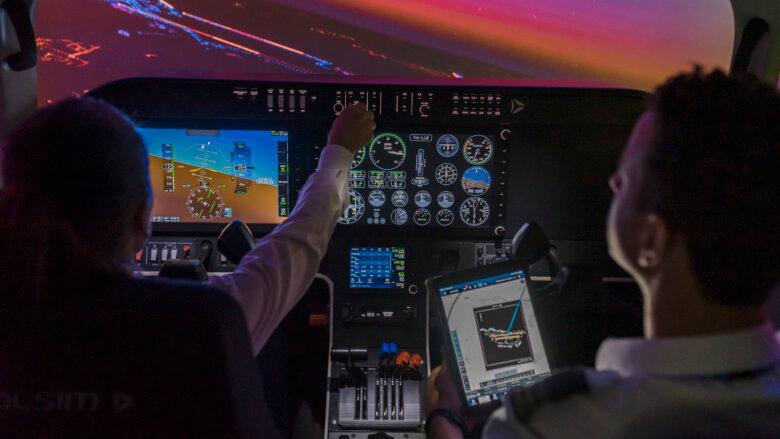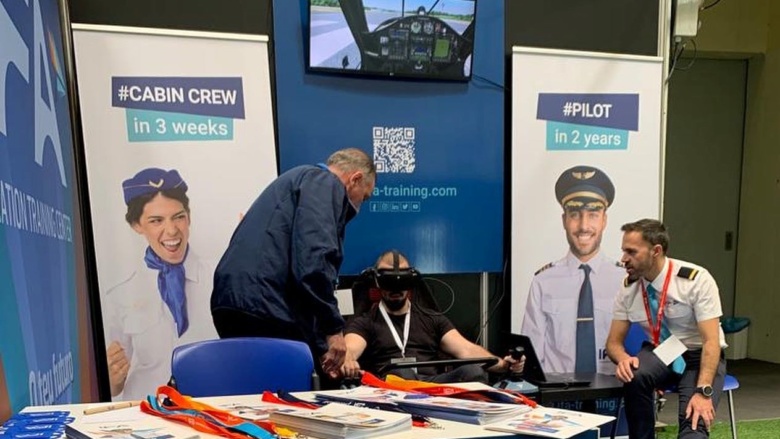APS MCC: A New Course At IFA
The APS MCC prepares the pilots to take a type rating course on a modern aircraft such as an Airbus A320 or Boeing 737.
What is it?
This is a course that teaches pilots how to interact and divide flight tasks among the elements of a crew, but following the methodologies used in airlines. It is an EASA recognized course and is aimed for a recent ATPL or CPL/MEIR graduate. The APS MCC prepares them to take a type rating course on a modern aircraft such as an Airbus A320 or Boeing 737.
Why did it come up?
The APS MCC (Airline Pilot Standard Multi Crew Cooperation) course emerged because some airlines realized the difficulties that young pilots had when placed in a simulator, whether in selection processes by companies or already in the type qualification course.
The APS MCC is an improved MCC that, in addition to teaching crews to work together, also teaches pilots to fly airplanes using simulators that are a total representation of the airplane. It consequently gives, in a selection process, a significant advantage to pilots who have completed this program when compared to others who have not. This is due to better preparation of professionals or future professionals.
APS MCC Program
The APS MCC includes 4 days of Airbus A320 instructor-led theoretical training (TRI). This first phase of the course includes presentations and discussions on operation in a multicrew environment, as well as the introduction of techniques required for problem solving in the cockpit.
IFA students have access to the school on a 24/7 basis, so when they are not in theoretical classes or in a simulator, they can train the A320 procedures in flat panel for training flows and checklist.
After, the simulator phase begins, which lasts 10 days and a total of 40 hours. The A320 simulator is the same as the airplane. Simulators are the biggest training tool used by airlines around the world because they are an identical representation of the plane – both in physical space and in the demonstration of systems.
The simulator phase of the APS MCC course is divided into several sections including:
- Monitoring and Cross checking
- Task sharing
- Use of checklists
- Flight management
- FMS use: schedule, manage and monitor in accordance with SOP’s
- Systems normal operations in accordance with SOP’s
- System abnormal and emergency operations
- Environment, weather, and ATC
Higher qualifications and more preparation
At the end, there is time dedicated to writing the CV, preparing for interviews, and practicing group exercises, aiming for a better preparation of candidates for the selection processes.
Considering the emphasis that the course places on preparing students for a future as an airline pilot, it is natural for companies to look more positively at students who have completed the APS MCC, as they will take less risk in selecting candidates and will limit any difficulties that may arise during the type qualification or line training phase.









